Hey there, friend. If you’ve ever found yourself battling a stubborn cough, a fever that won’t quit, and then suddenly sprinting to the bathroom with an upset stomach, you’re probably asking yourself, “Is this just a random bug, or is my pneumonia playing tricks on me?” You’re not alone. A surprising number of people—about one in four with community‑acquired pneumonia—report diarrhea at some point during their illness. It can feel confusing, frustrating, and even a little scary.
In the next few minutes we’ll walk through why pneumonia can give you pneumonia diarrhea symptoms, how to tell if those stools are a warning sign, and what you can do right now to feel better. Think of this as a chat over a cup of tea, where I’ll share the science, sprinkle in a few personal stories, and give you practical steps you can start using today.
How Pneumonia Affects the Gut
Even though pneumonia’s main stage is the lungs, the drama doesn’t stay there. Your body’s immune response is a bit like a neighborhood watch—when it spots an invader, it sends out signals (cytokines) that travel through the bloodstream. Those signals can accidentally stir up inflammation in the gastrointestinal (GI) tract.
Inflammation spreads beyond the lungs – Cytokines can irritate the lining of your intestines, making them a bit more “leaky” and prone to watery stools. A 2005 study of 1,812 patients with community‑acquired pneumonia found that diarrhea showed up in roughly 24 % of cases. It’s not the most common symptom, but it’s definitely real.
Fever‑induced dehydration – Fever ramps up your metabolism and makes you sweat more. Add rapid breathing (your body’s trying to get extra oxygen), and you’re losing fluids fast. When you don’t replace those fluids quickly enough, the intestines absorb less water, which can paradoxically lead to watery, loose stools.
Medication side effects – Many of the antibiotics we use to crush the bacteria in pneumonia also mess with the friendly bacteria in your gut. Macrolides (like azithromycin), fluoroquinolones (levofloxacin), cephalosporins, and even some penicillins are notorious for causing antibiotic‑induced diarrhea. Steroids, proton‑pump inhibitors, and NSAIDs can add to the mix.
Gut‑microbiome disruption – Think of your gut as a bustling city of microbes that help digest food, produce vitamins, and keep harmful bugs in check. When antibiotics storm in, they don’t just target the bad guys; they also clear out the good neighbors. That sudden imbalance can manifest as diarrhea, often within a couple of days after you start the medication.
Spotting Diarrhea in Pneumonia
Now that we’ve covered why it happens, let’s talk about when you should pay attention. Not every bathroom trip means trouble, but certain patterns can help you decide if it’s part of the pneumonia picture or something else.
Typical timing – Diarrhea that shows up 2‑5 days after the first pneumonia symptoms (cough, fever, chest pain) or after you begin antibiotics is often linked to the infection or its treatment. If it appears suddenly before any fever, you might be dealing with a separate GI virus.
Accompanying pneumonia signs – Look for the classic lung clues: persistent cough, chest pain that worsens when you breathe deeply, fever, chills, and shortness of breath. When those are present alongside loose stools, the odds tip toward “pneumonia‑related GI symptoms.” The Mayo Clinic notes that nausea, vomiting, or diarrhea can accompany pneumonia, especially in older adults.
When diarrhea signals complications – If you notice blood or mucus in the stool, intense cramping, or the diarrhea lasts more than a week, it could mean the infection is spreading, or you’ve developed a secondary gut infection. In the elderly, prolonged diarrhea can quickly lead to dangerous electrolyte imbalances.
Below is a quick comparison that helps you visualize the difference:
| Feature | Pneumonia‑Only | Pneumonia + Diarrhea |
|---|---|---|
| Primary symptom | Cough, fever, chest pain | All of the above + 3+ watery stools/day |
| Onset of GI upset | Rare | 2‑5 days after lung symptoms or meds |
| Associated signs | Shortness of breath, chills | Dehydration, electrolyte loss, abdominal cramping |
| Typical duration | Days‑weeks (respiratory) | 3‑7 days (if medication‑related) |
Differentiating the Causes
Sometimes the cause of the tummy trouble isn’t crystal clear. Let’s break it down into three common suspects and give you a mental checklist to sort them out.
Antibiotic‑induced vs. infection‑driven – If the diarrhea begins after you start a new antibiotic and is mostly watery without blood, think medication. If the loose stools show up at the same time as fever and cough, the infection itself may be the culprit.
Separate GI infection – A stomach virus (norovirus, rotavirus) often brings vomiting, fever, and diarrhea together, but the fever pattern is usually higher and the cough is minimal or absent. Recent travel, eating out, or a sick roommate can point to this scenario.
Decision flowchart – Here’s a simple “yes/no” guide you can run through in your head (or scribble on a napkin):
- Did the diarrhea start after antibiotics? – Yes → likely medication side effect.
- Are you still running a fever above 101 °F? – Yes → infection‑related GI upset possible.
- Is there blood or severe cramps? – Yes → seek medical help immediately.
- Do you have recent exposure to a known stomach bug? – Yes → consider separate GI infection.
According to the CDC, up to 30 % of patients on broad‑spectrum antibiotics experience some level of diarrhea, and most cases resolve once the drug course is completed or a probiotic is added.
Managing Diarrhea Safely
Even if the cause is benign, nobody enjoys a bathroom sprint. Here are some friendly, evidence‑based steps you can take right now.
Hydration strategies – The single most important thing is replacing lost fluids and electrolytes. Aim for 150‑200 ml of an oral rehydration solution (ORS) every hour if you’re losing a lot. You can make a homemade ORS by mixing:
- 1 liter of clean water
- 6 teaspoons of sugar
- ½ teaspoon of salt
If ORS feels too clinical, sports drinks or coconut water work too—just watch out for excessive sugar. Avoid caffeine, alcohol, and large amounts of dairy while you’re in the thick of it.
Probiotic & diet tips – After finishing antibiotics, many clinicians recommend a probiotic containing Lactobacillus rhamnosus GG or Saccharomyces boulardii. These strains have been shown to cut antibiotic‑associated diarrhea by about 40 % in several studies. Pair them with gentle foods: bananas, rice, applesauce, and toast (the BRAT diet) for the first 24‑48 hours.
When to adjust antibiotics – If diarrhea persists beyond three days, becomes bloody, or you develop severe abdominal pain, contact your prescriber. Sometimes a switch to a different class (e.g., from a macrolide to a doxycycline) can make all the difference. Never stop antibiotics on your own—your doctor will guide you through a safe transition.
Here’s a sample three‑day hydration and diet plan you could follow (adjust portions for your body size and appetite):
| Day | Fluids (ml) | Meals | Check‑in |
|---|---|---|---|
| 1 | 2 L water + 1 L ORS | BRAT breakfast; soft boiled chicken & rice lunch; banana‑yogurt dinner | Stool frequency, watch for blood |
| 2 | 2 L water + 500 ml sports drink | Oatmeal with honey; baked sweet potato & steamed fish; applesauce | Energy level, hydration signs |
| 3 | 1.5 L water + probiotic capsule | Scrambled eggs; quinoa salad; mild soup | Ready to re‑introduce regular foods? |
Remember, if at any point you feel dizzy, have a rapid heartbeat, or notice dark urine, those are clues that you’re dehydrated and need medical attention.
Red‑Flag Symptoms
Most of the time, pneumonia‑related diarrhea is a nuisance you can manage at home. However, there are warning signs that demand a call to your doctor—or a trip to the emergency department.
- Blood or black/tarry stools – Could indicate severe intestinal irritation or bleeding.
- Persistent high fever (≥ 102 °F) + diarrhea – Suggests the infection may be spreading or you’ve developed a secondary bacterial gut infection.
- Severe dehydration – Dry mouth, sunken eyes, little or no urine output, rapid pulse.
- Confusion, especially in older adults – Pneumonia can already cloud mental clarity; add diarrhea and you risk electrolyte shifts.
- Shortness of breath that worsens – If your lungs feel tighter while you’re dealing with GI upset, you may need supplemental oxygen.
Doctors diagnose the cause of the diarrhea with a quick stool test, a repeat chest X‑ray if they suspect worsening pneumonia, and blood work to check electrolytes. The goal is to rule out serious complications while adjusting your treatment plan.
Putting It All Together
Let’s recap the journey you just took:
- We learned that pneumonia can genuinely cause diarrhea through inflammation, fever‑driven fluid loss, and the side effects of antibiotics.
- You now have a mental checklist to spot when the stools are part of the pneumonia picture and when they might be something else.
- We detailed practical steps—hydration, diet, probiotics, and when to talk to your clinician—so you can feel proactive instead of helpless.
- Red‑flag signs are crystal clear, giving you confidence about when to seek urgent care.
Living with pneumonia is already challenging enough; adding GI symptoms can feel like the universe is kicking you while you’re down. But armed with knowledge, you can turn that feeling of helplessness into a plan of action. Keep a water bottle handy, watch the timing of any new symptoms, and don’t hesitate to call your healthcare provider if anything feels off.
Have you ever experienced diarrhea while fighting a lung infection? How did you manage it? Drop a comment below or reach out to a trusted medical professional. Your story might be the very thing another person needs to feel less alone.
Stay hydrated, stay hopeful, and remember—your body is fighting hard, and you’re doing the same.

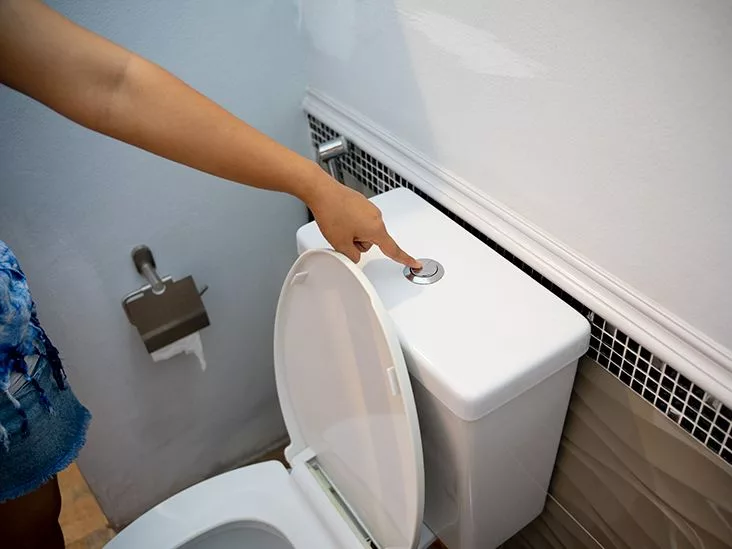

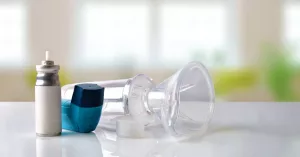
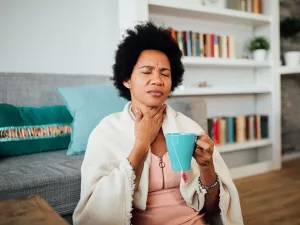

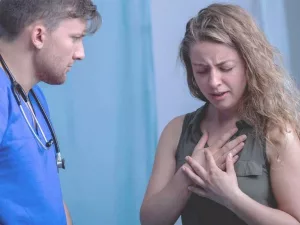
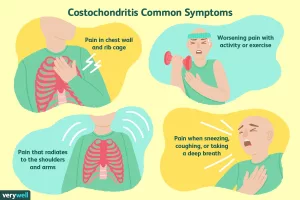


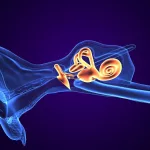

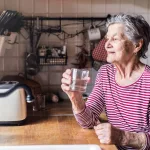


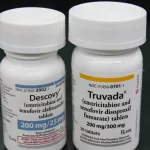



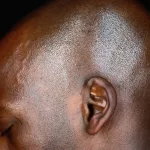




Leave a Reply
You must be logged in to post a comment.